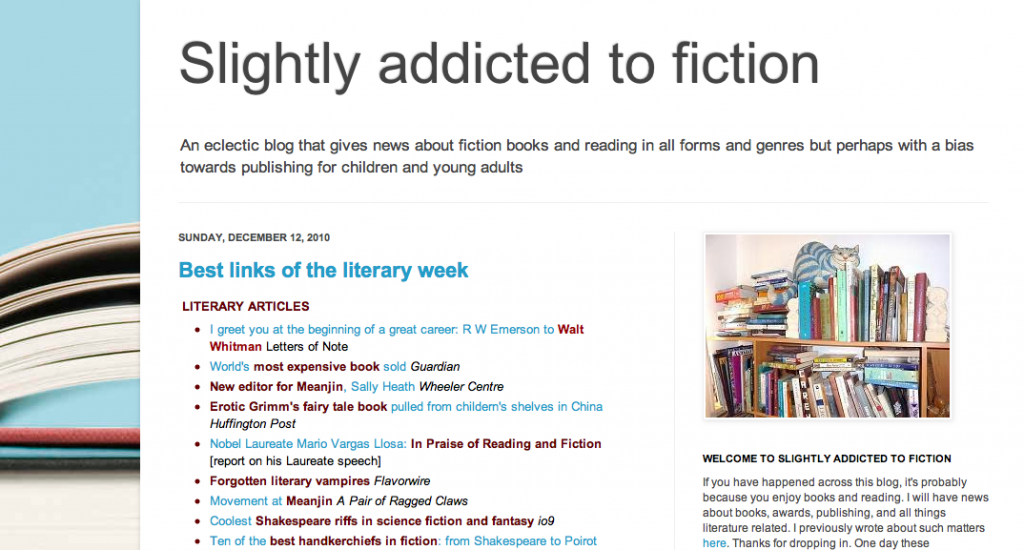Judi Jagger, the current Western Australian Children’s Book Council judge, has developed her own blog. It is a must read for anyone interested in children’s and YA literature. Judi explains how her blog came to be:
Slightly Addicted to Fiction was born on a wet Saturday afternoon in mid November. It has sprung from the Fiction Focus blog that I started while working in Western Australia’s CMIS as joint editor of the print journal Fiction Focus. When I moved away from the city, the late and much-missed Jill Midolo arranged for me to maintain the blog from home; a dream job.
Although I always knew it was too good to last, the sudden loss of funding for the FF blog still came as a shock. One minute I was maintaining a blog that had secured a global readership, the next minute I wasn’t.
The blog itself hadn’t ceased, just my role. The many comments of support that flowed in were both affirming and humbling.
For a day or two, I did nothing. Then I put my toe in the Twitter water and hastily withdrew. Too ephemeral. Tweeting the Prime Minister’s Literary Awards was fine, but I longed to set them in the context of other awards on the blogging record. So an impulsive decision on that wet Saturday afternoon saw me set up my own forum. Once a blogger…
On Slightly Addicted to Fiction, I will continue what had been a successful formula: news about literature-related matters. I will continue the weekly links, expanding them into a broader context to encompass news about literary and children’s and Young Adult fiction.
I have also ventured back on to Twitter with a new identity (@readingjay) and am loving the cleverness of paper.li that publishes a daily newspaper http://paper.li/readingjay that magically selects interesting posts from the people I follow. Each day it produces an attractive publication that regularly surprises me with its useful content. Blogging and Twitter: the ideal couple.
Readership of Slightly Addicted to Fiction is building slowly but it is something I feel compelled to do, with or without a large audience.
My former CMIS colleagues have a heavy workload and are doing a great job maintaining the first blog. I see the two as complementary and together will provide a useful resource for schools to keep their finger on the pulse of the literary world.
What was a job has become a hobby, but remains my passion. Slightly addicted to fiction – it’s an understatement.
Congratulations to Judi on her past and present contribution to Australian and global children’s and YA literature. And may we all be “slightly addicted to fiction”!

